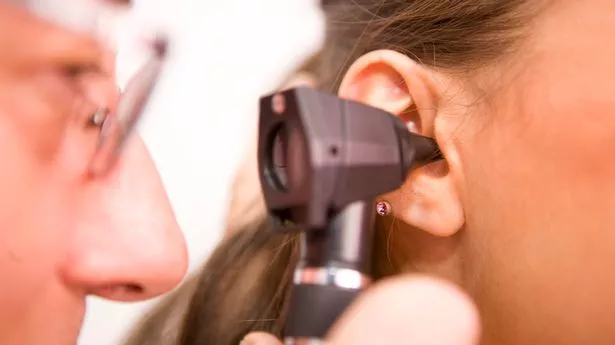Medical experts are warning strange sounds in your ears could be stopping you from getting a good night's sleep. The NHS has urged people to see their doctor if they experience sounds that appear to be in their ears.
You may also need to call 99 if you experience certain symptoms. Health officials are raising the alarm over tinnitus - a condition that can cause huge annoyance for sufferers.
The NHS is advising individuals to consult their GP if they experience sounds that seem to originate in their ears - and not in the environment around them. While it's typically not a sign of anything serious and may improve on its own, it can plague people's lives and require medical assistance.
Do I have tinnitus?
If you have tinnitus, you may hear sounds in one or both ears, or in your head. These sounds can come and go, or you might hear them constantly. Tinnitus can sound like:
- hissing
- throbbing
- ringing
- buzzing
- whooshing
- humming
- music or singing
What causes of tinnitus?
It's not always clear what causes tinnitus, but it's often linked to:
- anxiety or depression
- some form of hearing loss
- Ménière's disease
- conditions such as diabetes, thyroid disorders or multiple sclerosis
- taking certain medicines – tinnitus can be a side effect of some chemotherapy medicines, antibiotics, non-steroidal anti-inflammatory drugs (NSAIDs) and aspirin
You should see a GP if
- your tinnitus is getting worse
you have tinnitus regularly or constantly
- your tinnitus is bothering you – for example, it's affecting your sleep or concentration, or is making you feel anxious and depressed
The GP will examine your ears to determine if your tinnitus is caused by a treatable condition, such as an ear infection or a build-up of earwax. They might also check for any hearing loss. If they cannot find anything, they may refer you to a specialist for further tests and treatment.
You should see a GP urgently if
- you have tinnitus that beats in time with your pulse
You should go to A&E or call 99 if
- you have tinnitus after a head injury
- you have tinnitus with sudden hearing loss, weakness in the muscles of your face, or a spinning sensation (vertigo)
The NHS warn: "Do not drive to A&E. Ask someone to drive you or call 999 and ask for an ambulance. Bring any medicines you take with you."
If you have tinnitus try
Do
- try to avoid things that can make tinnitus worse, such as stress or loud background noises
- try to relax – deep breathing or yoga may help
- try to find ways to improve your sleep, such as sticking to a bedtime routine or cutting down on caffeine
- join a support group – talking to other people with tinnitus may help you cope
Don’t
do not have total silence – listening to soft music or sounds (called sound therapy) may distract you from the tinnitus
do not focus on it, as this can make it worse – hobbies and activities may take your mind off it
